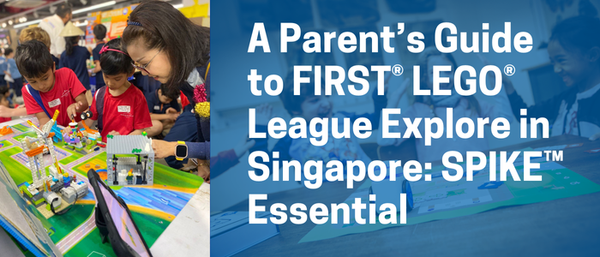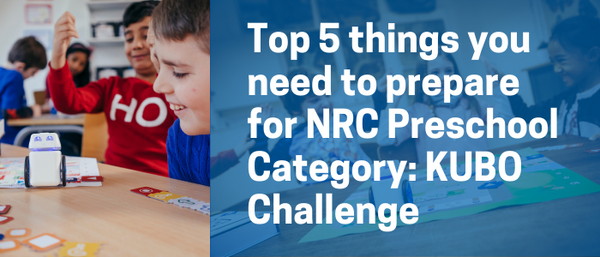How to be a Good Parent-Coach - 5 Actionable Tips
More parents are becoming proactive in their children's enrichment outside of school to ensure that their children are well-rounded and well-prepared for life.
This could mean having to double up as the educator, trainer or coach of the child apart from being a parent. (We'll call them Parent-Coach in this article.)

Problem is, it can be overwhelming for both the child and parent when too many roles overlap and the lines are blurred. Both parties may end up feeling burnt out and grow resentful towards each other.
Here are some tips for our fellow Parent-Coaches out there!
1. Set some boundaries
Juggling multiple professional and personal roles within a family is difficult but definitely doable.
However, the trick to ensuring that good relationships are maintained is to set healthy boundaries at the start.
This means that both parent and child needs to be clear on when it is appropriate to engage in certain work/personal topics.
Work topics refer to anything that involves the parent taking up the educator/coach/trainer role i.e. training time
Personal topics refer to anything that a normal parent would be dealing with their child i.e. showing love, disciplining etc.
What You Should Try Not Do:
- Parent/child should not be mentioning work topics during family time e.g. meal times, family activities
What You Should Do:
- Parent are encouraged to establish a clear timetable system (when is work and when is family time) so that both parent and child are clear on when certain topics or behaviour are appropriate.
- If you have to cross a boundary (like asking a work question or , always ask for consent so that the other party can adjust their mindset and expectations of the interaction.
2. Sharing goals and expectations
Another thing you can do as a parent is to share clear expectations and your goals with regards to the "working relationship" with your child.
This way, your child can understand certain decisions better and the context in which things are being done.
Goals are things you would like to achieve as a pair. The more tangible, the better for a child.
Expectations are rules that you hold in place to ensure the goals are met.
Examples of Goals (You can change it as you go):
- To win a competition
- To develop a set of skills at the end
- To complete a project
Examples of Expectations:
- Keep a disciplined training schedule (BOTH parent and child) by penalising when you start slacking
- If you are stressed or need a break, let each other know and respect the time off
- Establishing a timeline and reviewing it as you go
3. Have fun outside of "work" with AND without each other
We believe that being a parent is a priority over any other role.
When your working relationship with your child is great, it is very easy to overdo such productive activities. Both of you may end up working together more, instead of playing and enjoying each other's company.
Developing your relationship with your child at a personal level is important to know them as a person. This is the time when your child can confide in you their fears, dreams and more.
So...remember to take a break from work and have fun together!
What You Can Do:
- Try a new activity that is relevant to your interests BUT not related to work/projects.
- Make sure to spend time with other friends and family members too
4. Give lots of love and praise at the right time
In most instances, you may be coaching your child along with other children (in the same class/team/group etc.)
Regardless if you are a touchy-huggy family or a serious-straight talking family, parents and children always have a way to show their love and praise. However, there is a time and place for it.
A good parent-coach needs to know when to be professional and when to be generous with their appreciation and admiration of their child.
For instance, you may want to tone down in the work setting by giving high-fives to your child's team instead of proud parent-level hugs.
Afterwards, when you are alone with your child and family, you can express as much love as you want. Acting too much like a parent in front of other team members may affect the group dynamics and cause some tension between the members who feel like some members are more favoured than the rest.
Children tend to look to their parents for affection and approval at a young age and providing it can only strengthen your relationship with them.
5. Create a differentiated learning environment
If you realise that you end up using a lot of shared spaces for work and personal matters (especially with the stay-home/COVID19 situation), then it may be time to do something about it.
Creating dedicated spaces or environments, and donning dedicated outfits even, within the same space can help with make role-switching for both parent and child a more tangible experience. For example, when it is time for training, the study room may have Layout A but when it is time for play time, the study room goes into Layout B.
What You Can Do:
- Invest in portable furniture/equipment that you can move around the space to reassemble the space into a different environment
- Changing seating arrangements/switching seats for specific situations can help too!
- Stick to a "uniform" for specific roles - a specific black shirt for training time
_________________________________________________
At the end of the day, you are the parent and you know your child best. These tips are meant as a guide to help you out initially.
All the best and have lots of fun together!



